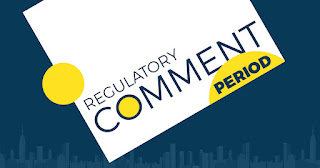On May 25, 2022, the NYS Division of Human Rights proposed 9 NYCRR 466.16, which will require any entity that administers any public housing program or assistance to provide a detailed notice of rights from source of income discrimination. The enabling statute, Executive Law 170-e, explains that an entity that administers includes "any state, county, municipal or other governmental entity. . . or any agency or instrumentality of such an entity, and any public or private non-profit entity authorized to administer any public housing program or assistance."
Specifically, "[t]he notice is to advise individuals of their right to nondiscrimination based on lawful source of income in housing pursuant to Human Rights Law section 296.2-a (publicly-assisted housing) or Human Rights Law section 296.5 (private housing)" pursuant to the regulation.
The notice must be provided as follows:
- Current recipients must receive notice within 30 days after the effective date of the regulation;
- Future recipients must receive notice "upon notification such individual qualifies for the voucher or assistance";
- "In writing, and in 14 point... font";
- Electronically is permissible by a link to the notice; &
- On all websites administered by the entity.
The required notice will look like this:
KNOW YOUR LEGAL RIGHTS AS A RECIPIENT OF HOUSING ASSISTANCE
By law, you are protected from housing discrimination.
The New York State Human Rights Law makes it unlawful to discriminate in housing on the basis of your source of income. This includes all forms of housing assistance (like Section 8 vouchers, HUD VASH vouchers, New York City FHEPS and others), as well as all other lawful sources of income including: Federal, state, or local public assistance, social security benefits, child support, alimony or spousal maintenance, foster care subsidies, or any other form of lawful income.
Housing providers who are covered by the Human Rights Law include landlords, property managers, real estate professionals like brokers, tenants seeking to sublet, and anyone working on their behalf.
Housing providers are not allowed to refuse to rent to you because you receive housing assistance. They are also not allowed to charge you higher rent, or offer you worse terms in a lease, or deny you access to facilities or services that other tenants receive.
Housing providers are not allowed to make any statement or advertisement that indicates housing assistance recipients do not qualify for the housing. For example, a housing provider cannot say they do not accept housing vouchers or that they do not participate in a program such as Section 8.
It is lawful for housing providers to ask about income, and about the source of that income, and require documentation, but only in order to determine a person’s ability to pay for the housing accommodation or eligibility for a certain program. A housing provider must accept all lawful sources of income equally. It is unlawful to use any form of screening of applicants that has the intent or result of screening out those receiving housing assistance.
If you believe that you have discriminated against by a housing provider with regard to your lawful source of income, you can file a complaint with the New York State Division of Human Rights.
How to File a Complaint
A complaint must be filed with the Division within one year of the alleged discriminatory act or in court within three years of the alleged discriminatory act. To file a complaint, download a complaint form from www.dhr.ny.gov. For more information or assistance in filing a complaint, contact one of the Division’s offices, or call the Division’s toll-free HOTLINE at 1 (888) 392-3644. Your complaint will be investigated by the Division, and if the Division finds probable cause to believe discrimination has occurred, your case will be sent to a public hearing, or the case may proceed in state court. There is no fee charged to you for these services. Remedies in successful cases may include a cease-and-desist order, provision of housing that was denied, and monetary compensation for the harm you suffered. You can obtain a complaint form on the website, or one can be e-mailed or mailed to you. You can also call or e-mail a Division regional office. The regional offices are listed on the website.
If you have thoughts about this notice or this regulation, you have until July 24, 2022 to comment by emailing: caroline.downey@dhr.ny.gov with I.D. No. HRT-21-22-00001-P in the subject line.







